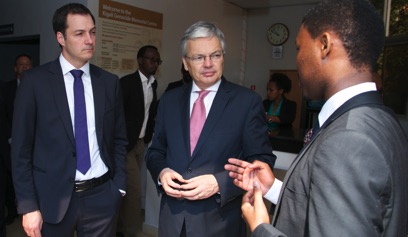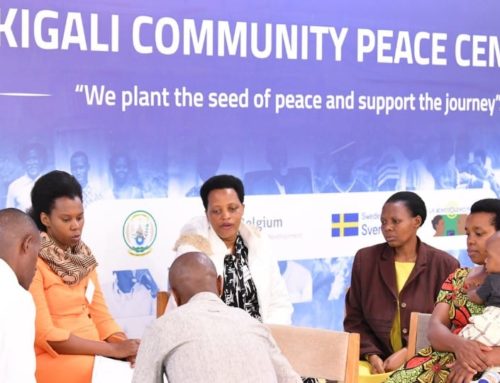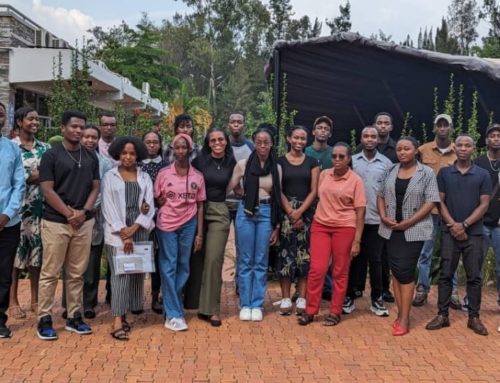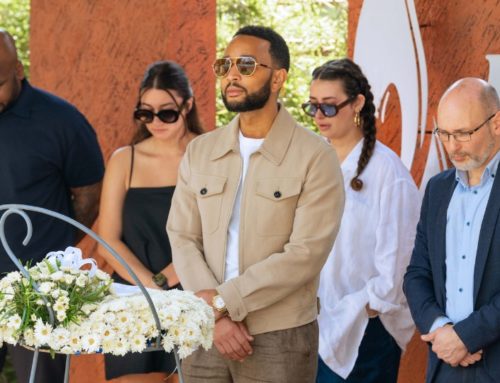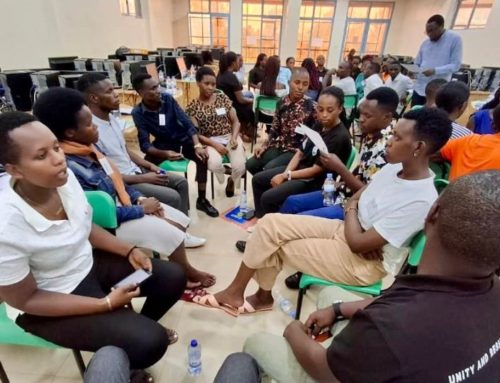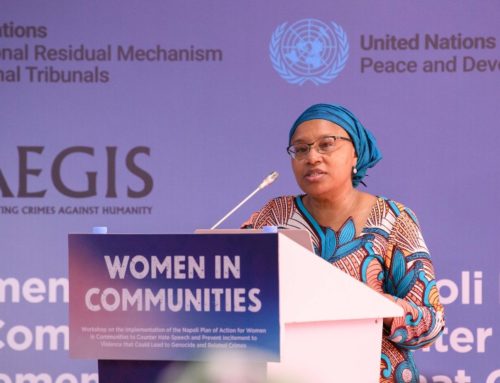Belgium’s Deputy Prime Minister and Foreign Minister Didier Reynders, together with Minister for Development Cooperation Alexander De Croo, yesterday concluded two days in Rwanda with a visit to the Kigali Genocide Memorial.
During a tour of the Genocide Archive Rwanda at the Memorial with Yves Kamuronsi, the Aegis Trust’s Deputy Director in Rwanda, Reynders viewed the library, the physical archives and saw how documents relating to the history of Genocide in Rwanda are being preserved, digitized and made accessible for education purposes and for the public visiting at large.
The Belgian Deputy PM said that he was impressed by the scale of the expansion plan for the site as a place of documentation and education. “What you do here is important in educating future generations about the history of Rwanda and therefore very useful to prevent future mass atrocities and genocide here but also anywhere in the world,” Didier Reynders stated. Following the visit he also tweeted, “There is the possibility to partner with the Kigali Genocide Memorial and @GenArchiveRw
Established by the Aegis Trust in 2004 at the request of the Rwandan Government and Kigali City Council at the site where some 250,000 victims of the genocide against the Tutsi lie buried, the Kigali Genocide Memorial continues to be run by Aegis today on behalf of CNLG (Rwanda’s National Commission for the Fight against Genocide) as a place both of remembrance and learning for a new generation.
In partnership with Aegis, in December CNLG announced a plan to preserve the Gacaca Archives – the World’s largest transitional justice collection – in a new facility at the Kigali Genocide Memorial to form part of the Global Centre for Humanity, a centre for excellence in genocide research.
Welcoming the opportunity to share Aegis’ work at the Memorial with senior members of the Belgian Government, Yves Kamuronsi noted that while much is being done in Rwanda to save archival materials on the genocide from loss or destruction, the scale of the challenge remains enormous. “We have to continue informing and advocating so that policy makers understand the urgent need to protect our common heritage though improved archive skills and technology”, he said.

